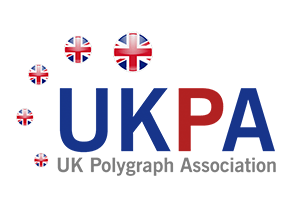The Legal Aspects of Polygraph Testing in the UK: What You Need to Know
Polygraph testing, commonly known as a “lie detector test,” is becoming increasingly recognised and utilised across the UK. From intricate workplace investigations and pre-employment screenings to sensitive relationship matters and even in criminal justice contexts, more people are turning to polygraph examinations for clarity, verification, and truth discernment. But one of the most common and critical questions we hear from individuals and organisations alike is: “Are polygraph tests legal in the UK, and how are their results viewed?”
The short answer is unequivocally: yes — polygraph testing is entirely legal in the UK. However, the exact way results can be used, their evidentiary weight, and their implications depend significantly on the specific context and the legal framework surrounding the situation. Let’s break down these nuances to provide a comprehensive understanding.
Are Polygraph Tests Admissible in Court?
In England and Wales, polygraph test results are not automatically admissible as primary evidence in criminal or civil court proceedings. The legal system generally views polygraph results as supplementary information rather than conclusive proof of guilt or innocence. This is largely due to historical legal precedents and ongoing debates surrounding the scientific reliability and potential for manipulation of polygraph results in a formal courtroom setting.
That said, while not direct evidence, they can certainly be used to support an existing body of evidence, or to influence decisions outside of direct courtroom testimony. This is particularly relevant in private cases such as family or employment disputes, where both parties mutually agree to the test beforehand. In such scenarios, the results can help guide negotiations, mediation, or inform internal decisions, often expediting resolutions that might otherwise be protracted and contentious. For instance, in family court, results might be considered by a judge if both parties consent and the results provide context to a specific claim.
Use of Polygraph Testing by Government Agencies
Polygraph testing does have a firmly established and formal role within certain critical government settings, demonstrating its recognized utility. Since 2014, the Ministry of Justice has legally mandated that convicted sex offenders on licence undergo regular polygraph examinations as part of their supervision. This robust legal framework is in place to provide probation officers with an additional, invaluable tool to assess ongoing risk, monitor compliance with license conditions, and ultimately enhance public protection.
Furthermore, polygraph testing may be strategically employed in highly sensitive areas of national security, intelligence, and counter-terrorism operations. While the specifics of these applications are not publicly disclosed for obvious security reasons, their use underscores the government’s recognition of the polygraph as a valuable instrument for vetting personnel and managing internal threats within critical national infrastructure and defence.
Private and Workplace Polygraph Testing
For private individuals, the use of polygraph testing is entirely legal and increasingly common. Many clients choose to use it proactively and reactively in a variety of personal and professional matters, such as:
- Relationship and family disputes: To verify claims of infidelity, address trust issues, or clarify events within sensitive family dynamics.
- Proving honesty in business dealings: For pre-investment vetting, partnership disputes, or to confirm integrity in high-stakes financial transactions.
- Theft or fraud investigations in the workplace: To narrow down suspects, corroborate alibis, or bring clarity to internal financial discrepancies.
- Pre-employment screening: For roles requiring high levels of trust or access to sensitive information, particularly in sectors where integrity is paramount.
Crucially, in workplace scenarios, while employers can request an employee to undergo a polygraph examination, it must always be entirely voluntary. An employee cannot be legally compelled or forced to take a test under existing UK employment law. However, agreeing to a polygraph can often demonstrate integrity, a willingness to cooperate, and can significantly help resolve issues quickly and amicably, potentially safeguarding an employee’s reputation or tenure.
The Importance of Professional Standards and Regulation
It is vital to understand that because polygraph testing is not yet regulated by specific statute in the UK for all its applications, choosing a qualified, experienced, and ethical examiner is absolutely crucial. Always look for accredited professionals who adhere to strict ethical guidelines and established best practices. This ensures the highest standards of accuracy, maintains confidentiality, and guarantees fairness throughout the entire examination process. Such professionals will typically be members of recognised associations.
At the Polygraph Association UK, our core mission is dedicated to raising and maintaining professional standards across the industry, protecting the interests of clients, and promoting the responsible and ethical use of lie detector testing throughout the country. We advocate for rigorous training, ongoing professional development, and adherence to a strict code of conduct for all our members.
Final Thoughts
Polygraph tests in the UK are indeed legal, safe, and increasingly widely used in both private and professional contexts. While courts may not treat the results as conclusive standalone evidence, their utility as a powerful investigative tool for uncovering the truth, facilitating the resolution of disputes, verifying statements, and restoring trust cannot be understated. They serve as a significant aid in decision-making processes across various sectors.
If you are considering a polygraph test, whether for personal reassurance or professional necessity, make sure you choose an accredited examiner who upholds the highest ethical standards and possesses extensive experience. That way, you can be confident in both the integrity of the process and the reliability of the results obtained.






